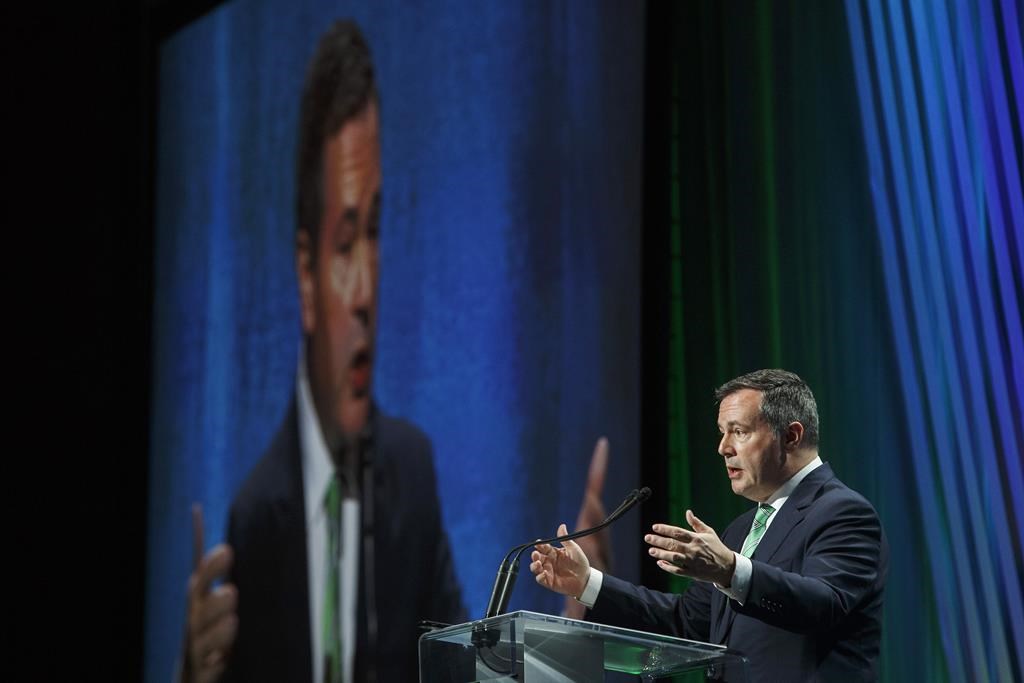The move towards a provincial police force to serve municipalities who don’t have their own police service got a stern rebuke on Tuesday, as the Rural Municipalities of Alberta (RMA) formally opposed the move by submitting a report to the Ministry of Justice and Solicitor General.

“The proposed provincial policing model does not address the RMA’s core priorities about levels of service, how costs will be covered and local input into policing,” RMA president and Ponoka County reeve Paul McLauchlin said in a statement.
“Based on the arguments provided by the province so far, there’s simply no evidence that a switch to a provincial police service will be worth the cost and disruption.”
The statement from the association representing 69 different counties and municipal districts said the information shared by the provincial government “has left significant questions unanswered regarding how an (Alberta provincial police service) will increase policing service levels in rural areas, decrease overall policing costs, or increase local input into policing.”
McLauchlin said there are some aspects of the proposed model that are worth further exploration, adding there’s not reason why those can’t be used with the existing work the RCMP does.
The RMA noted there would be increased annual costs if the province ended its relationship with the RCMP, it would lose 30 per cent of policing funding from the federal government. And the cost of transition listed in the provincial report would be $366 million, all borne by Albertans. All without an identifiable increase in rural service levels, the RMA said.

Last month, Alberta Municipalities, an association of more than 275 municipalities in the province, voted to oppose the transition away from the RCMP.
The RMA said one rationale given by the “Fair Deal Panel,” the premier, the minister of justice and solicitor general, and “other (government of Alberta) decision makers” was “because the RCMP is headquartered Ottawa and therefore not accountable to Albertans.
“However, this narrative is false.”
McLauchlin said the misinformation from the province is concerning.
“Inserting politics into important decisions about the cost and quality of policing and public safety in the province is quite alarming,” McLauchlin said. “Spending millions of dollars to shift to an unproven, poorly explained model just for the sake of distancing the province from the federal government would be a major mistake.”
The Ponoka County reeve also noted the low polling on an RCMP replacement and the lack of public engagement is revealing.
“The fact that the government of Alberta has not conducted a public engagement on the proposed APPS model is a sign that they know it will not be supported by the public. The delivery of policing services matters to every Albertan, both urban and rural, and to not consult directly with the public is a major oversight on the part of the province and shows a willingness to put political goals above what Albertans believe is best for the safety of their communities.”
In a statement from an acting spokesperson for the Ministry of Justice and Solicitor General, the province said it is still mulling over recently-collected feedback.
“Less than a week ago, Alberta Justice and Solicitor General finished an extensive stakeholder engagement that included more than 50 in-person and virtual meetings with invitees from the 371 municipalities, First Nations and Metis Settlements policed by the RCMP in Alberta. This included engagement with RMA and (Alberta Municipalities),” the statement from Diane Carter read.
“We’re now analyzing what we heard from stakeholders before deciding our next steps.”
- McLean accuses Calgary third-party advertiser of ‘whipping votes’ in favour of rezoning bylaw
- Canadian curler Chelsea Carey says don’t compare me to Jennifer Jones
- Firefighters battle blaze at vacant house in northwest Calgary
- 7 sent to hospital after carbon monoxide poisoning incident in northwest Calgary




Comments